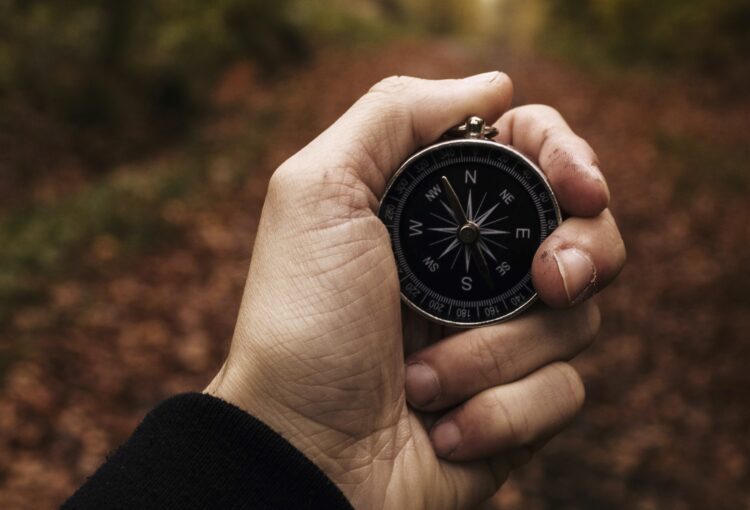
Ways to build purpose – the why and the how
What is purpose?

Purpose is the ‘pathway to flourishing’ says Martin Seligman,pioneer of positive psychology and Mihaly Csikzentmihalyi, psychologist and originator of the concept of ‘flow’, states that ‘purpose provides activation energy for living.’
What is it about purpose that makes it a key aspect of not only our wellbeing but our productivity and how can we connect with it more readily?
What’s new?
It’s likely that the coronavirus pandemic will have led us to connect us with a new sense of purpose or purposes not only for ourselves but with our colleagues, teams, organisations and communities. Since March, I’ve been supporting individuals in organisations connect with what’s important to them and am excited to be embarking on a series of workshops to support teams to understand ‘what makes work work’, to find their ‘flow’ and their purpose now that the world is a very different place. As our purpose shifts with the circumstances of life, I think it’s important to ‘check-in’ with ourselves, to really connect with what’s important in this moment, at this time and to build a purpose, a life and a career around it.
Why purpose is important
Understanding and living according to our purpose has a positive psychological impact.
Research shows that people who understand their own values and purpose, particularly during difficult times, show higher levels of resilience than those who drift through without purpose.

Knowing our purpose makes us less vulnerable to ‘psychological discord’ or the unease we can experience whenever we’re not focused on external things. This can feel like boredom, anxiety, or depression. Purpose gives us a mental focus which can help us divert ourselves from negative thoughts and feelings.
Being in ‘flow’ is connected to purpose and with happiness. Flow is the state of being fully immersed in a feeling of energised focus where we are totally absorbed in our surroundings and ourselves. Flow can be experienced more frequently by people who have a strong sense of purpose, and as Mihaly Czikszentmihalyi has shown, the more flow we experience, the happier we feel.
As we feel ourselves moving towards our purpose, our self-esteem and our confidence are lifted as we work through difficulties along the route.
Purpose gives us hope and hope is good for our wellbeing. As we hold close our goals – work, life, societal etc. we have a sense that the goals are attainable, and that our lives will change for the better once we have reached them. If we are unwell, for example, a sense of hope can help us cope with difficult times and potentially bring about quicker recovery.
Connecting with our purpose can lead to us feeling more motivated and engaged in what we do, which can have a positive impact not only on our own wellbeing but on our performance and impact with others.
In those situations where there is a great deal of complexity, where there are ‘no right answers’, being connected with our purpose can provide clarity and a way to move forward.
Building not finding

Some people are clear about their purpose from early in their lives. I’m thinking about people who knew from a young age they wanted to be a nurse, a musician, a teacher – their purpose reflected in their work. But for most of us, it’s not a case of ‘finding’ or ‘discovering’ purpose as if it is something we external we should go looking for, but building it upward and inward from where we are now.
‘Purposes’ not purpose
In seeking our purpose, we perhaps carry an assumption that it’s a single thing, one idea or goal which once discovered, will unlock greater levels of understanding, wellbeing and drive. It may be, though, that we have multiple purposes either simultaneously (e.g. championing human equality through the work we do and choosing a vegan way of living; sharing knowledge and ideas by working in libraries and helping run local events for children) or over a period of time. What is important to us now may have evolved over time and be different to what was important 5 years ago.
So building our purpose or purposes is key not only to our motivation, productivity and confidence but to our overall happiness and wellbeing.
Here are a three activities which could help us connect us with what’s most important.
- Consider your work or your daily activities and ask yourself ‘what’s important about that?. Make a note of your response and ask yourself again, ‘and what’s important about that?’ Keep on asking yourself, 5 times in total, what’s important about what you do – and you will be closer to understanding and building your purpose.
- Reflect on what you loved to do as a child, before the world told you what you should or shouldn’t like or do. Take yourself back to that time in your mind’s eye, associate back in to that time and notice how you felt. Make a note of those feelings and reflect on times you experience similar feelings now. What are they and what does this tell you about your purpose?
- Listen to my Outdoor Coach podcast for a mindful, self-coaching guide to building your purpose.
If you’d like to read more articles like this, sign up to my newsletter, Consciously Connected!

Thanks to Naomi Regan and Lisa Jeskins for your support!
